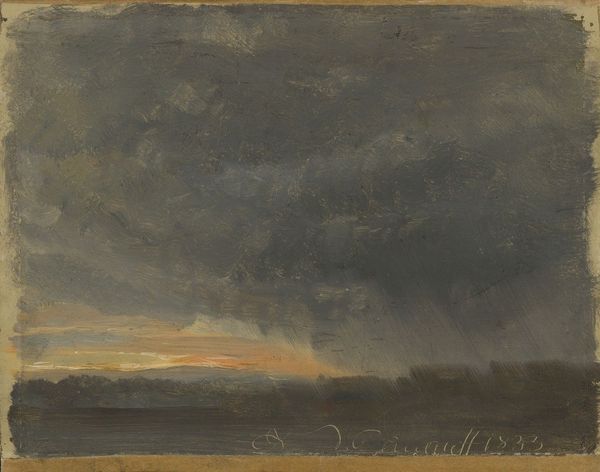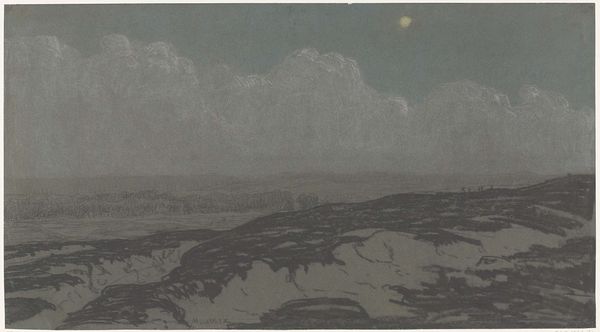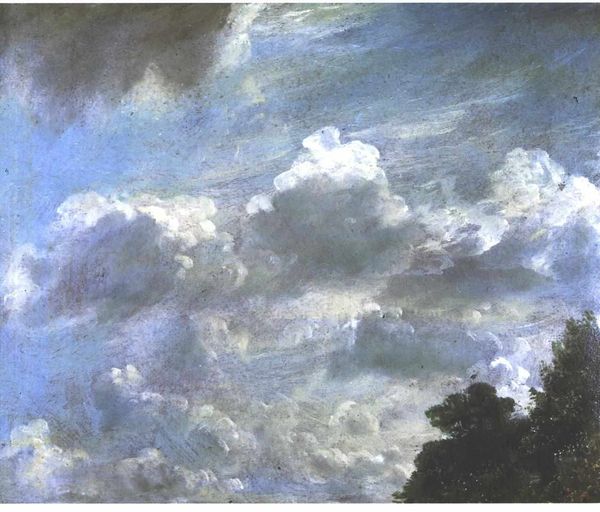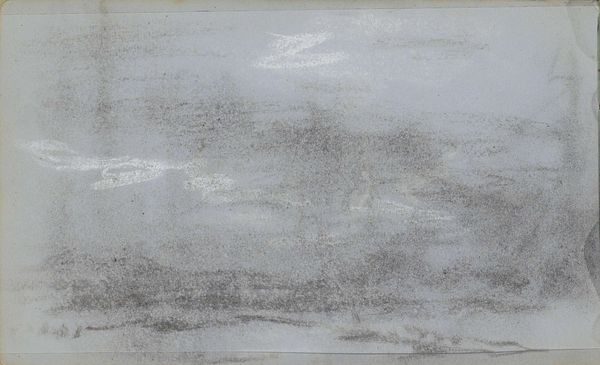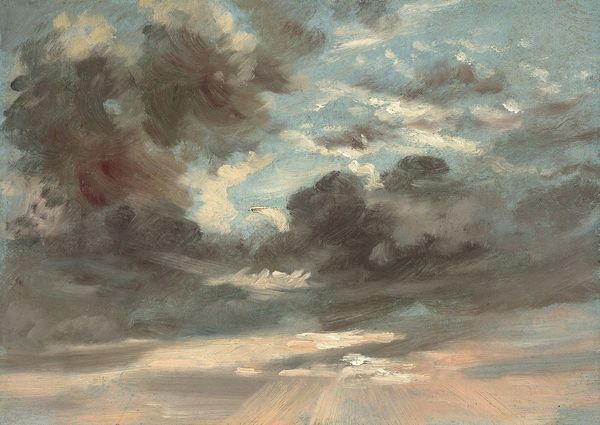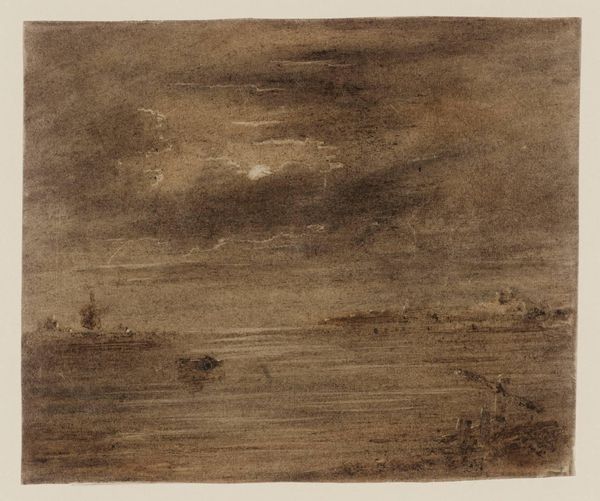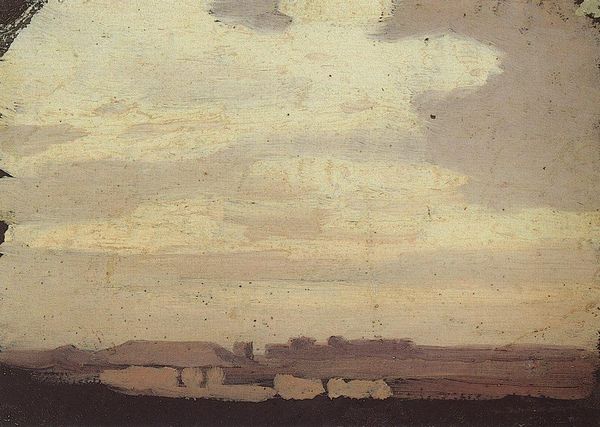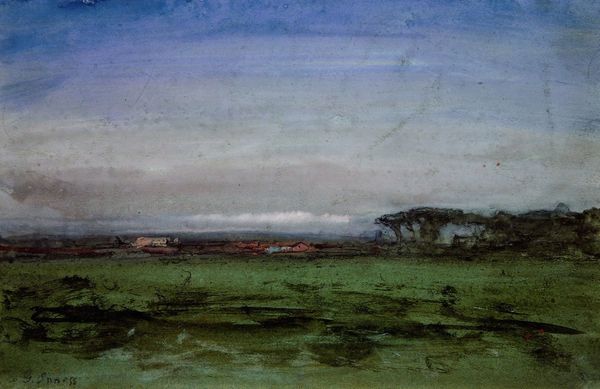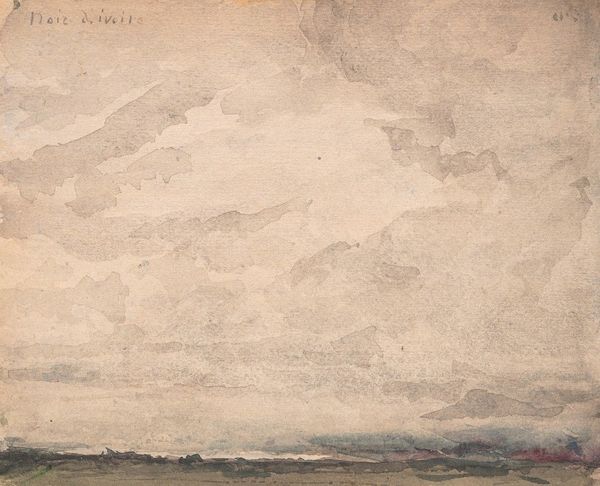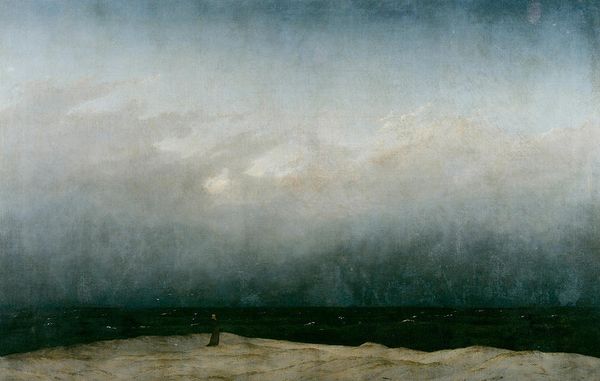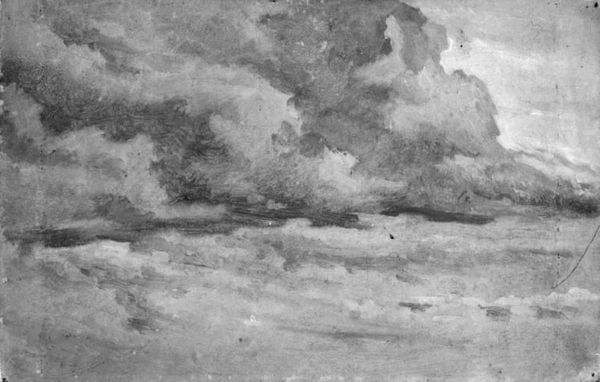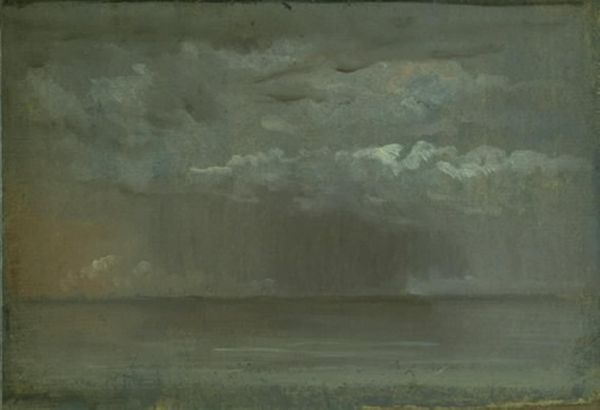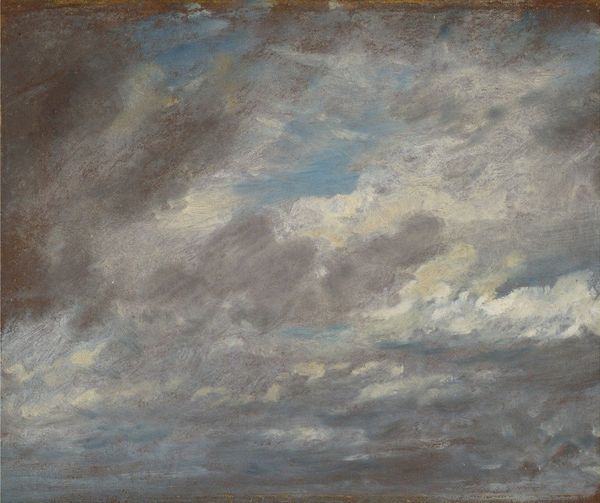
painting, plein-air, oil-paint
#
painting
#
plein-air
#
oil-paint
#
landscape
#
ocean
#
romanticism
#
sea
Copyright: Public domain
Curator: "Beach in Brighton" is the name, an oil-on-paper work by John Constable. The medium being oil suggests that he wasn't intending for it to be a preliminary study but instead a work for sale. What’s your initial reaction? Editor: Overwhelmingly bleak. The dark, brooding sky really dominates. The beach itself seems almost like a thin, unstable line barely holding back that imposing atmospheric mass. Curator: Precisely, and remember the historical context. Brighton was becoming increasingly popular with fashionable society during Constable’s time. This painting offers an alternative view to those more idealized scenes, hinting at a somewhat turbulent, working existence on the south coast of England. It captures a mood of precarity tied to coastal labor. Editor: So you’re suggesting Constable intentionally shied away from the commercial appeal of picturesque beach scenes? It’s clear, looking at the handling of paint, this wasn't produced as a formal studio landscape. Look at the sketchy, broken strokes in the sky, compared with smoother sections around the two figures. Curator: I think so. He’s actively grappling with the process. Oil sketches, often executed "en plein air," allowed artists like Constable to directly engage with the sensory experience of the landscape. Note that he has two figures on the shoreline and also depicts maritime traffic which emphasizes industry versus a simple pastoral setting. Editor: This choice is incredibly intentional. In what ways did institutional display then affect his art’s trajectory, particularly its place within discourses of value? I suspect some of his Brighton beachscapes became popular only after his death, with art historians categorizing him, perhaps problematically, into art-historical developments. Curator: Undeniably. Museums shape perception. By emphasizing particular narratives, they reinforce the social and cultural significance attributed to artistic movements, subsequently amplifying artistic legacies for their cultural consumers. Editor: Which leads me to believe he intended on disrupting art trends that his contemporaries promoted in London society! Ultimately, its bleakness is precisely its power. Curator: It offers us a perspective rooted in tangible experiences and invites the viewer to witness it. Editor: An exercise in direct sensory engagement and artistic labor.
Comments
No comments
Be the first to comment and join the conversation on the ultimate creative platform.
